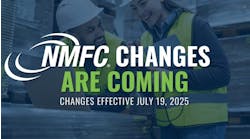Earlier this year a colleague of mine shared with me her takeaways from an industry event presentation by Daniel Burrus, author and futurist, who spoke about becoming an anticipatory organization.
Burrus said all too often business leaders are too busy doing what needs to be done today so they fail to keep “their opportunity antennae” up when it comes to envisioning the future for their organization.
He mentioned that businesspeople that are agile and react quickly after a problem occurs are thought to be good leaders. However, he said, “Reacting quickly is becoming less valuable every year. Today you need to anticipate disruption before it occurs.”
This does not mean you make decisions based on uncertainty. He explained that there are some certainties that we can count on. One being that “the future is about relationships. Continue to cultivate them and work on new ones.” He explained that good relationships are based on trust, which is based on honesty and integrity.
“Before making any change, ask yourself how the trust between you and the people impacted by the change is going to be affected. If the trust is going to go down, don't make the change in that way; make it so trust remains.”
Burrus also noted that there are two kinds of trends: hard and soft. Hard trends are based on future facts and soft ones are based on assumptions.
Another big takeaway from his presentation is that today there is risk in not doing anything. “The cost of not changing can exceed the cost of ‘yes’ and can render you uncompetitive.”
He encouraged members of the audience to transform their businesses. And he explained that “transformation comes from the inside out while change comes from the outside in.”
In closing his presentation, Burrus challenged the audience to set aside one hour a week to look at the future. “Use that time to ask yourself, “What do I know? What are the hard trends? What are the opportunities? Then pick one and make it happen.”



